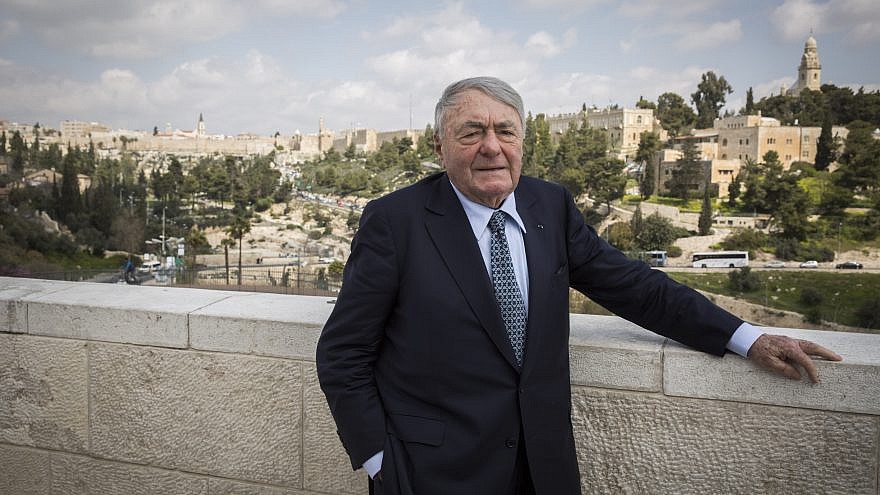Claude Lanzmann, a French filmmaker perhaps best known for the nearly 10-hour oral-history project “Shoah,” died on July 5 at the age of 92.
Originally from an Eastern European Jewish family who moved to France, Lanzmann was born in Paris on Nov. 25, 1925. He, his brother Jacques and his parents, Armand and Paulette (Grobermann) Lanzmann, went into hiding during World War II.
War remained a resounding theme in his life. He made numerous films that touched on its many themes, including “Israel, Why (Pourquoi Israel)” in 1973; “Sobibor, Oct. 14, 1943, 4 p.m.,” in 2001, about a partially successful uprising against camp guards; and two years later, “The Last of the Unjust,” an interview with Rabbi Benjamin Murmelstein, a Jewish administrator of the Theresienstadt ghetto.
But his life’s work was “Shoah,” comprised of interviews from World War II survivors—both victims and those who perpetrated crimes. Viewing it has been described as a journey, emotionally and physically, through a long, meandering treatment on film that is replete with both words and significant gaps of silence. The film pointedly did not include actual footage from the war; it concentrates on the after-effects, on the lives of those who lived through it.
Jewish agencies, institutions and individuals throughout the world mourned the loss of a man so deft with the camera, and with such astute abilities in visual and historical story-telling.
President of the World Jewish Congress Ronald S. Lauder said “Shoah” was “a monumental contribution to the historical memory of the Holocaust, creating an unprecedented awareness and understanding of the atrocities of the killing machines and the Nazi attempt to exterminate European Jewry.”
Of Lanzmann, Lauder said he “was a relentless truth-seeker and master filmmaker who took pains to open the eyes of the world to the greatest crime of contemporary history, and to ensure that its memory never be buried. As the years pass, and the number of survivors among us wanes, ‘Shoah’ will continue to serve as a critical testimony to the horrors of the Holocaust for future generations to bear witness and remember.”
In 2015, Lanzmann participated in a conference in Jerusalem on the Allied Response to the Holocaust, organized by the World Jewish Congress’ Israel Council on Foreign Relations, where he introduced another of his films, “The Karski Report,” about a Polish resistance fighter who tried to alert the Allies of what was happening to the Jews in Europe.
Natan Sharansky, outgoing chairman of the Jewish Agency for Israel and a former Soviet refusenik who spent nine years in Russian prisons, said “Claude Lanzmann was single-handedly responsible for keeping the memory of the Holocaust alive in the hearts and minds of so many around the world. His magnum opus, ‘Shoah,’ captured the horrors of that period through the personal testimonies of survivors, witnesses and perpetrators alike, and was the first time many were confronted with the reality of the Holocaust as told by those who were there.”
He continued, saying “his personal dedication to commemorating the Shoah was unparalleled, and he traveled around the world, even in his later years, to ensure the memory of the victims was never forgotten. For that, we owe him a great debt of gratitude.
“May his memory be a blessing.”
Lanzmann married three times and fathered two children, Angélique, 68, and Félix Lanzmann, who died in 2017. For most of the 1950s, he lived with French writer, philosopher and feminist Simone de Beauvoir.


























